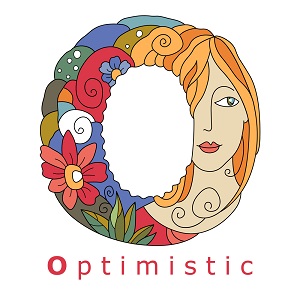 Most of us experience stress and anxiety these days, so it is important to find ways to get some relief. One way is to practice writing therapy as a way to get in touch with your feelings.
Most of us experience stress and anxiety these days, so it is important to find ways to get some relief. One way is to practice writing therapy as a way to get in touch with your feelings.
What do you do to pick yourself up when you’re feeling down or stressed? Maybe you call a friend, or you might decide to stay in bed and watch your favorite series on television.
Have you ever thought about using writing as a kind of treatment or therapy?
According to a number of studies, those who write about the most difficult or stressful experiences in their lives tend to enjoy better health outcomes.
The narratives that we tell ourselves give our life a sense of purpose and direction.
Writing therapy allows you to investigate the stories you tell yourself, the emotions involved with the experiences, and the possible meanings we might get from those occurrences.
Writing can be an effective kind of therapy that is also low-cost and simple to acquire.
Writing down your ideas and putting them into words gives you the power to work through difficult situations.
 Writing therapy can assist you in sorting through your memories and feelings around difficult life transitions, such as loss and worry, as well as tension.
Writing therapy can assist you in sorting through your memories and feelings around difficult life transitions, such as loss and worry, as well as tension.
Writing therapy provides you with a risk-free environment in which you can monitor your progress and engage in introspection.
You can use writing as a technique to work through your thoughts, even though it may not always be a complete alternative for therapy.
However, you can use writing as a tool that can supplement the traditional therapy sessions that you might attend.
Writing therapy provides you with a structured environment in which to engage with and reflect upon the experiences that occur in your life.
Writing therapy allows you to investigate the beliefs you have about past experiences and the ways in which those beliefs may be responsible for specific feelings.
Use the following thought starters in your journal to get the exploration started:
1. Start Your Day By Writing Some “Morning Pages.”
Morning Pages are three pages of freewriting done first thing in the morning, and the practice was made popular by author Julia Cameron.
This daily practice of completing three pages with your unedited thoughts will assist in clearing your mind so that you can begin each day with a clean slate.
Morning Pages – Write Daily For Clarity, Creativity, Productivity Video:
The WDEP Model is a tool that can assist you in considering what it is that you want and determine if you are making the decisions necessary to achieve those goals.
It may assist you in experiencing a greater sense of mastery over the choices you make on a daily basis.
- Wants. What do you want?
- Doing. What steps are you taking to ensure that you achieve your goals?
- Evaluate. Is what you’re doing bringing you closer to achieving the goals you’ve set for yourself?
- Plan. To get what you desire, are you able to devise a strategy that will be more effective?
3. The ABC Way of Thinking (Activating Event, Beliefs, Consequences).
 We have the predisposition to believe that triggering events will lead to certain consequences.
We have the predisposition to believe that triggering events will lead to certain consequences.
This can help you investigate your views and give you a chance to reflect on how you feel.
- The Activating Event. The event brings on a certain feeling or train of thought.
- Beliefs. What do you believe or think about the event that activated this response from you? Our beliefs are the component that frequently and unconsciously escapes our attention.
- Consequences. The feelings that we experience as a direct result of the activating event, as well as the ideas that we have.
4. Self-Contract.
Do you wish to modify your current situation?
What would you like to see differently?
Create a written agreement with yourself outlining the ways in which you will adjust your lifestyle in order to accomplish your objective.
5. A Letter Of Love Sent To Oneself.
How frequently do you take the time to recognize and appreciate your accomplishments?
Writing a love letter or a letter of thanks to yourself can be a wonderful way to create a good place for you to cultivate a healthy relationship with yourself.
6. Gratitude.
According to a number of studies, feeling grateful has a beneficial effect on a person’s overall health and happiness.
Keeping a record of your appreciation can boost your mood and overall sense of well-being if you include it in your daily routine.
There are Many Benefits to Writing Therapy!
The practice of writing as therapy can be an effective method for gaining insight into one’s emotions and thinking more deeply about one’s goals and aspirations in life.
Writing therapy can be an instrument that you employ to facilitate your own personal development and improvement.
You may find that working through challenging sentiments by exploring your beliefs and thoughts with the journal prompts provided above is helpful.
You are giving yourself the opportunity to be happy and healthier if you provide yourself with a setting in which you can work with your feelings.
Writing therapy has the potential to be a liberating kind of self-care! Give it a shot today to experience the difference it can make!






